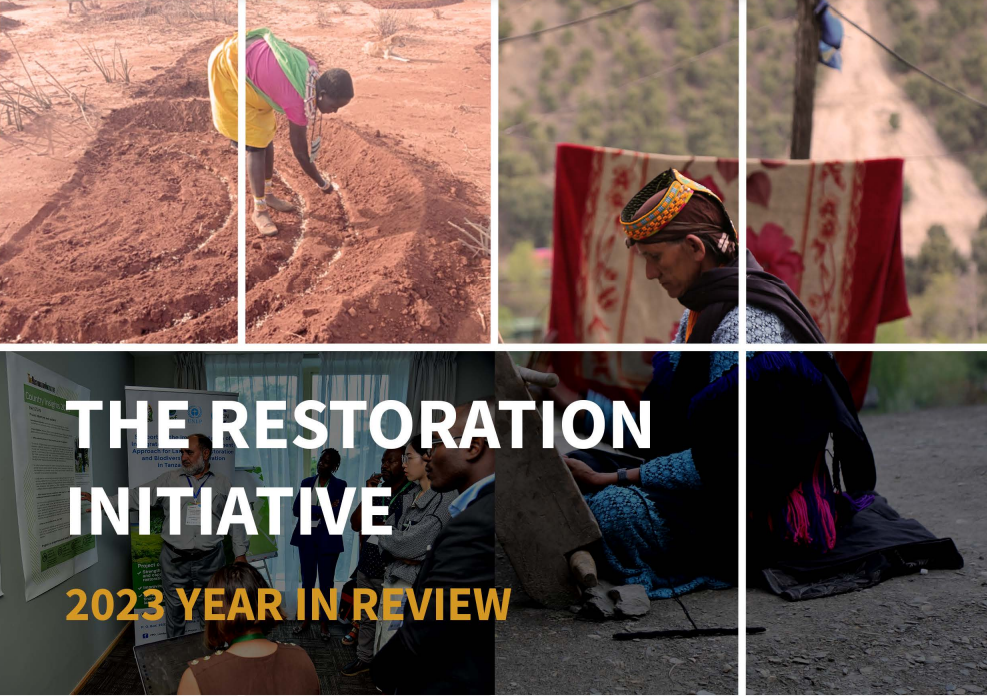The Restoration Initiative: 2023 Year in Review
Restoring Our Landscapes: A Global Effort under The Restoration Initiative
Land degradation is a global challenge, impacting nearly 2 billion hectares of land used for agriculture, pasture, and forestry. Deforestation and land degradation pose significant threats to global biodiversity, climate stability, and food security. The 2023 Year in Review publication showcases the achievements of The Restoration Initiative (TRI), a global program working to restore degraded landscapes in nine Asian and African countries and with the support of three Global Environment Facility agencies – the International Union for Conservation of Nature, the Food and Agriculture Organization of the United Nations, and the United Nations Environment Programme
As the final year of the global support project approaches, the 2023 Year in Review highlights the progress made towards reaching the Bonn Challenge goal of bringing 350 million hectares of degraded and deforested landscapes into restoration by 2030.This ambitious goal is being pursued amidst the United Nations Decade on Ecosystem Restoration (2021-2030).
The publication showcases TRI’s support mechanisms to ensure that its projects are effective and achieve lasting impact. This includes improving policies for FLR at national and sub-national levels, providing tools and training on developing restoration-linked businesses and investments, enhancing capacity to plan, implement and monitor restoration, increasing awareness, knowledge sharing and partnership on restoration and facilitating replication, mainstreaming and linking of successful restoration efforts and initiatives.
Reporting Results of Restoration on the Ground
In this publication, TRI showcases diverse strategies tailored to the unique needs of each country. These strategies include establishing value chains for non-timber forest products, implementing agroforestry and sustainable agricultural practices, empowering local communities with the skills and resources needed to enhance their income-generating activities, increasing protected areas through community agreements to restore important ecosystems, approving national forest and landscape policies and local-level zoning and development plans, and increasing benefits from ongoing restoration efforts through access to voluntary markets.… Read the rest
